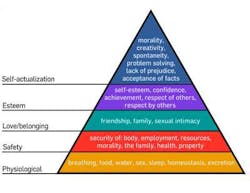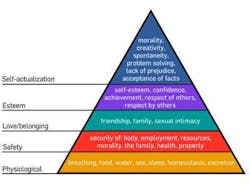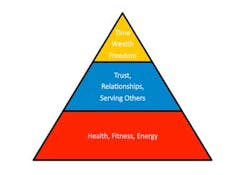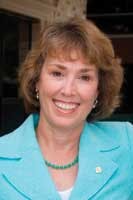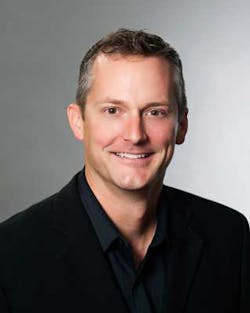The Priority Pyramid: The second of three steps in a stress-resistant dental practice
Think about three simple steps in changing your practice.
- Reigniting yourself
- Reprioritizing yourself
- Reminding yourself
Last month we posed the first charge in ending the madness and creating a less stressful life and practice. To summarize: Find your passion and reignite yourself through 100 hours of CE per year, every year, no exceptions.
This month, we will focus on step two: Reprioritizing yourself.
In our last article, we seeded the most important question we need to be asking ourselves: the why. As dentists, we know what we are doing, how to do it, when it is appropriate, and where it should be performed. Sadly, many of us lose sight of the why we do what we do. The happiest dentists are the ones who do not wait until the end of their careers to focus on why they are in dentistry.
With our patients, we must start by asking ourselves, “Why did they come to the dentist today, and why did they specifically come see me?” What do they need, what do they want, and why?
As successful practitioners, one of the most challenging parts of our day is presenting our findings of the needs and wants in our patients’ mouths. Our presentations must be comprehensive yet succinct, delivered with empathy and honesty, with the ultimate goal of building trust — oftentimes all in less than five minutes. Getting patients to say yes to treatment is a skill in itself. Whether your style is that of a salesperson, an educator, a dictator, or a motivator, one key component remains constant: we must distinguish the needs of our patients from the wants of our patient. To take it a step further, we must also understand the needs and wants of our teams and determine if that dovetails into our needs and wants for our practices.
Needs: Remember back to the basics in dental school and Maslow’s Heirarchy of Needs. While Maslow himself never actually used the pyramid to represent his theory, we all use this visual to summarize basic fundamental needs as a starting point and self-actualization as the lofty goal we look to achieve throughout our lives and careers. As human beings, we all have the same basic needs.
(Wikipedia)
Wants: If we all have the same basic needs, we arguably differ in specific wants. Some of us may want to work fewer hours, others may want to make more money, and many want both. Some of us may want to practice needs-based dentistry, while others wish to practice wants-based dentistry. Some of us prefer large teams laced with energy in our practice, while others choose smaller teams with a calmer, relaxing pace. There is no right or wrong. Our specific wants are a product of our upbringing, community, peers, debt load, and dreams. However, when we reduce wants down to the basics, we propose that everyone has the same three fundamental wants. You, your team, and your patients all want the same three basic things. When we understand this basic premise, presenting wants-based dentistry to our patients and leading our teams becomes easier. These three basic wants are summarized in the priority pyramid below:
The Priority Pyramid
Just like in Maslow’s Heirarchy, each level builds off the one preceding it; we cannot attain level two without first having level one. Health is the number one prayer request of most people and the No. 1 fundamental desire for every human being. We are health-care providers first and foremost to help others achieve better oral health.
The second want by all people is the desire for human interaction. You can define it in many ways: acceptance, popularity, close networks of people you trust, or serving other people. Life without relationships is solitary confinement. All relationships are built primarily on trust and the unilateral or reciprocal ability to serve another. The greatest joy we get from the profession is not the paycheck, but the difference we make in the life of someone else. Think about it: name your top three most rewarding dental cases you have ever performed. Would you do those three cases again tomorrow if you could? Even if you didn’t get paid?
Lastly, if we are lucky enough to have our health and a close network of good relationships, we all crave time, wealth, and freedom. Some might argue that power should be included in this third tier. We intentionally omitted this from the model, because at the core of quest for power is the desire for time, wealth, and freedom. Time: Ask any dentist about to sell his or her practice how fast their career flew by — and you will hear how it seems like they graduated just yesterday. Wealth: Wealth isn’t money. Wealth is freedom to pursue your friends, your faith, and your dreams. Wealth is the freedom to choose the type of dentistry we want to provide, the ability to serve others, and the ability to give back on our terms without compromise. Freedom: the luxury we crave that allows us to pursue happiness.
Walk into your office tomorrow and ask yourself: how can I help my team and my patients meet their needs and achieve their three basic wants. How can I help them better prioritize so that they, too, achieve their desires? In the end, we all want the same things.
Reprioritize yourself and your practice today. Accept the challenge. And look for us next month as we dive into “Step 3: Reminding yourself.”